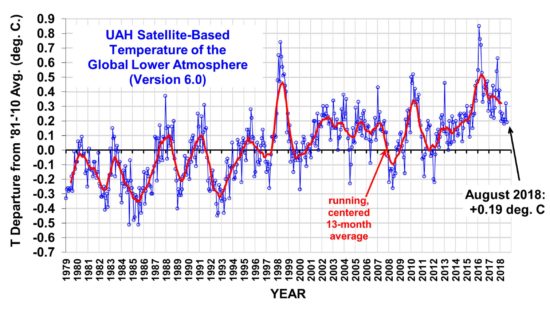- Joined
- Nov 28, 2011
- Messages
- 23,272
- Reaction score
- 18,278
- Gender
- Undisclosed
- Political Leaning
- Other
ttwtt78650 does have a point: We shouldn't pick two data points in isolation, and cite that as proof that climate change is worse. It can be an indicator, but it is not really proof. I'd also say that North Carolina is far too small of an area to make any definitive conclusions.
So, the real questions are:
1) Are hurricanes overall getting worse?
2) If so, then what's causing it?
The answer to both is yes. They are getting larger; wind speeds are staying higher for longer; they are moving slower, which means they cause more damage; they cause more precipitation, which means more floods; the storm surges are worse.
And yes, climate change causes almost all of this. As the oceans warm, they expand (leading to higher water levels) and put more moisture into the atmosphere (which means more precipitation, larger storms, slower pace). Right before Florence hit, climate scientists used models to calculate that Florence is probably going to produce 50% more rain than if the same storm had started in the pre-industrial era.
Warmer waters and atmosphere means the storms have more energy, which means stronger winds (which is why there is discussion now of adding "category 6" to storms). Storms are probably moving slower, and stalling over land, because of the way climate change is affecting pressure patterns.
So, Florence in isolation, or even compared to an earlier storm, is not definitive proof on its own. However, we can look at Florence, and even make a reasonable estimate how much worse it is because of climate change, and use it as an example of the impact of climate change.
So, the real questions are:
1) Are hurricanes overall getting worse?
2) If so, then what's causing it?
The answer to both is yes. They are getting larger; wind speeds are staying higher for longer; they are moving slower, which means they cause more damage; they cause more precipitation, which means more floods; the storm surges are worse.
And yes, climate change causes almost all of this. As the oceans warm, they expand (leading to higher water levels) and put more moisture into the atmosphere (which means more precipitation, larger storms, slower pace). Right before Florence hit, climate scientists used models to calculate that Florence is probably going to produce 50% more rain than if the same storm had started in the pre-industrial era.
Warmer waters and atmosphere means the storms have more energy, which means stronger winds (which is why there is discussion now of adding "category 6" to storms). Storms are probably moving slower, and stalling over land, because of the way climate change is affecting pressure patterns.
So, Florence in isolation, or even compared to an earlier storm, is not definitive proof on its own. However, we can look at Florence, and even make a reasonable estimate how much worse it is because of climate change, and use it as an example of the impact of climate change.


